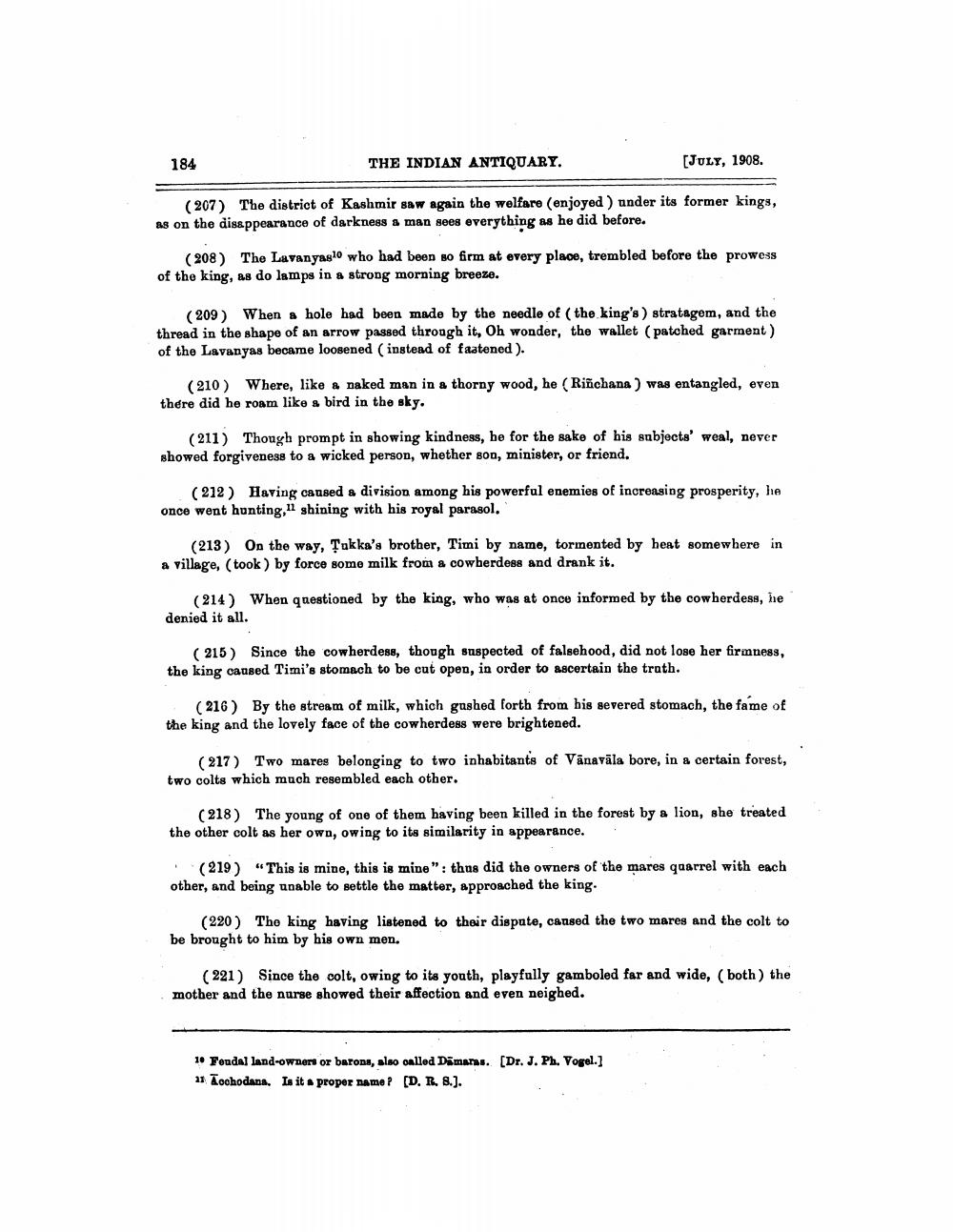________________
184
THE INDIAN ANTIQUARY.
[JULY, 1908.
(207) The district of Kashmir saw again the welfare (enjoyed ) under its former kings, as on the disappearance of darkness a man sees everything as he did before.
( 208 ) The Lavanyasło who had been so firm at every place, trembled before the prowess of the king, as do lamps in a strong morning breeze.
(209) When a hole had been made by the needle of the king's ) stratagem, and the thread in the shape of an arrow passed through it, Oh wonder, the wallet (patched garment) of the Lavanyas became loosened (instead of fastened ).
(210) Where, like a naked man in a thorny wood, he (Riñchana ) was entangled, even there did he roam like a bird in the sky.
(211) Though prompt in showing kindness, he for the sake of his subjects' weal, never showed forgiveness to a wicked person, whether son, minister, or friend.
( 212 ) Having caused a division among his powerful enemies of increasing prosperity, he once went hunting, 12 shining with his royal parasol.
(213) On the way, Tukka's brother, Timi by name, tormented by heat somewhere in a village, (took ) by force some milk from a cowherdess and drank it.
(214) When questioned by the king, who was at once informed by the cowherdess, he denied it all.
(215) Since the cowherdess, though suspected of falsehood, did not lose her firmness, the king caused Timi's stomach to be cut open, in order to ascertain the truth.
(216) By the stream of milk, which gashed forth from his severed stomach, the fame of the king and the lovely face of the cowherdess were brightened.
(217) Two mares belonging to two inhabitants of Vänavāla bore, in a certain forest, two colts which much resembled each other.
(218) The young of one of them having been killed in the forest by a lion, she treated the other colt as her own, owing to its similarity in appearance.
(219) “This is mine, this is mine": thus did the owners of the mares quarrel with each other, and being unable to settle the matter, approached the king.
(220) The king having listened to their dispate, cansed the two mares and the colt to be brought to him by his own men.
(221) Since the colt, owing to its youth, playfully gamboled far and wide, (both ) the mother and the nurse showed their affection and even neighed.
1. Foudal land-owners or barons, also called Dimaras. [Dr. J. Ph. Vogel.] 13 Zochodana. L it a proper namO? [D. R. 8.).




